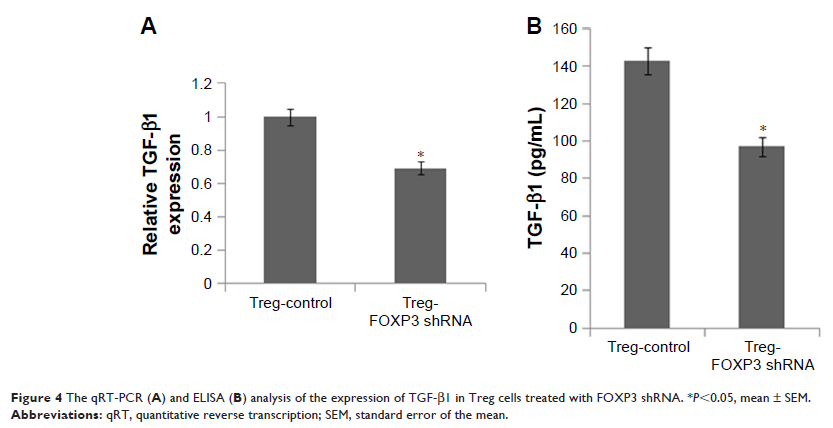9 0 6 7 6
论文已发表
注册即可获取德孚的最新动态
IF 收录期刊
- 2.6 Breast Cancer (Dove Med Press)
- 3.9 Clin Epidemiol
- 3.3 Cancer Manag Res
- 3.9 Infect Drug Resist
- 3.6 Clin Interv Aging
- 4.8 Drug Des Dev Ther
- 2.8 Int J Chronic Obstr
- 8.0 Int J Nanomed
- 2.3 Int J Women's Health
- 3.2 Neuropsych Dis Treat
- 4.0 OncoTargets Ther
- 2.2 Patient Prefer Adher
- 2.8 Ther Clin Risk Manag
- 2.7 J Pain Res
- 3.3 Diabet Metab Synd Ob
- 4.3 Psychol Res Behav Ma
- 3.4 Nat Sci Sleep
- 1.9 Pharmgenomics Pers Med
- 3.5 Risk Manag Healthc Policy
- 4.5 J Inflamm Res
- 2.3 Int J Gen Med
- 4.1 J Hepatocell Carcinoma
- 3.2 J Asthma Allergy
- 2.3 Clin Cosmet Investig Dermatol
- 3.3 J Multidiscip Healthc

CD4+CD25+ 调节性 T 细胞通过由 TGF-β1 诱导的上皮 - 间质转化促进肝细胞癌侵袭
Authors Shi C, Chen Y, Chen Y, Yang Y, Bing W, Qi J
Received 27 April 2018
Accepted for publication 18 September 2018
Published 28 December 2018 Volume 2019:12 Pages 279—289
DOI https://doi.org/10.2147/OTT.S172417
Checked for plagiarism Yes
Review by Single-blind
Peer reviewers approved by Dr Andrew Yee
Peer reviewer comments 4
Editor who approved publication: Dr William Cho
Background: CD4+ CD25+ regulatory
T cells (Tregs), a crucial component of the infiltration of immune cells in
tumor microenvironment, are associated with progression and metastasis of
hepatocellular carcinoma (HCC).
Methods: The
mechanism of Tregs in the invasion and metastasis of HCC was investigated in
vivo and in vitro using immunohistochemical analysis, western blot, and
quantitative reverse transcription-PCR (qRT-PCR).
Results: Analysis
of 78 clinical HCC samples indicated that high expression of Tregs was strongly
associated with poor cancer-free survival and overall survival of patients. The
reduced expression of E-cadherin and enhanced expression of Vimentin and
transforming growth factor-beta 1 (TGF-β1) were found in HCC tissue compared
with normal liver tissue. The HCC Hepa1-6 cells were treated with the
supernatant of Tregs-conditioned medium (Tregs-CM) to investigate the
epithelial-mesenchymal transition (EMT) and TGF-β1. Western blot and qRT-PCR
also showed that down-regulated E-cadherin and up-regulated Vimentin and TGF-β1
were found in Tregs-CM-treated Hepa1-6 cells. An experiment of tumorigenicity
in C57 mice showed larger and heavier tumors in Tregs-CM-treated group than in
the control group. Tregs produced higher TGF-β1 compared with Tregs treated
with FOXP3 shRNA. TGF-β1 with neutralizing antibodies was used to deplete
TGF-β1 in Tregs-CM, which enhanced expression of E-cadherin, reduced expression
of Vimentin and TGF-β1, and decreased migratory and invasive capacity of
Hepa1-6 cells.
Conclusion: Tregs
could promote the invasion and migration of Hepa1-6 cells, which are possibly
maintained by TGF-β1-induced EMT. This study showed that the development of
therapeutic strategies against TGF-β1 pathway is valuable in HCC therapy.
Keywords: hepatocellular
carcinoma, CD4+ CD25+ regulatory
T cells, epithelial to mesenchymal transition, TGF-β1
